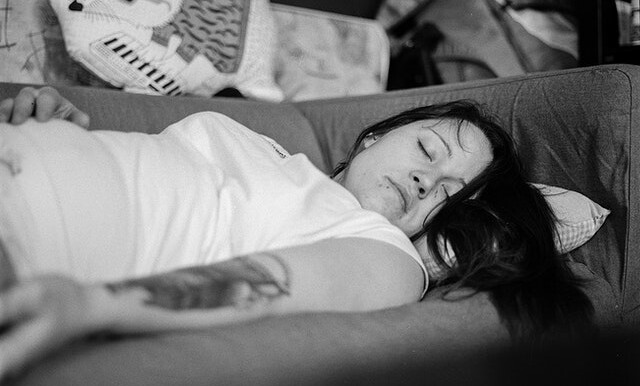Why sleep is important
Regular, good quality sleep is important for our physical and mental health.
When we sleep our bodies are able to rest, repairing tissue, decreasing blood pressure, heart rate, and body temperature.
Our brain remains active while we sleep, processing information, restoring daytime mental functioning, reorganising and retaining memories, and releasing growth hormones.
Just as your child needs sleep to grow, develop and stay well, you need enough sleep to get on with and enjoy parenting. You’ll feel more calm and content if you have proper rest, but it’s not easy to do when you have small children.
How much sleep adults need
Everyone is different, but most adults need seven to eight hours sleep a night.
You may need more sleep if you:
- feel sleepy most of the time, or find waking up in the morning hard
- feel irritable, moody, anxious or depressed
- fall asleep during the day
- struggle to concentrate.
Sleeping when you have young children
The first three months of your new baby’s life may be the most exhausting for you as a parent or caregiver. The impact of sleepless nights on every aspect of your life can be shocking, and some days it can feel like you’re living in a bubble, with everything fuzzy around the edges.
Newborns aren’t born knowing the difference between day and night, and it takes them a while to start sleeping more at night. This means it might be hard to get any extra sleep in the first few weeks. At this stage, it’s important to sleep when pēpi sleeps – everything else can wait.
Older babies and children go through stages where they may have issues settling into sleep, or with waking in the night. When they’re teething or sick, they’ll likely wake and need your comfort and attention.
At these times, it can be really hard to get the sleep you need. The next best thing is to rest as much as you can, and to have strategies to help you relax.
Things you can do to feel more rested
Ask for help
Being a parent can be stressful, and it can all feel overwhelming at times. You can cope with stress and exhaustion by asking for help from friends and whānau, and accepting help when it’s offered.
Often it’s help with the small, everyday things – like housework, meals, errands, taking the baby out, or looking after other tamariki - that makes a big difference. Time is a great way for whānau to develop a deeper bond with the baby and the baby’s parents, too.
If you’re breastfeeding, you may want to consider expressing breastmilk so someone else can feed your pēpi while you rest. If you’re formula feeding, show someone else how to make up the formula.
If you’re feeling distressed, frustrated, or like you can’t cope, ask someone else to hold your baby, or put them in a safe place like their cot. Never shake a baby. It can cause bleeding in the brain and permanent brain damage.
If you’re having trouble coping with your pēpi, call PlunketLine any time, day or night, on 0800 933 922.
During the day
- Try to sleep or rest when your baby or children do. It’s easier said than done when there are so many other things that need to be done, but remember your health is more important than a tidy house.
- Turn off the phone when you’re resting.
- Arrange for a trusted friend or relative to look after your tamariki so you can sleep.
- Talk to visitors about the best time to visit and how they can help.
- If it works for you, you may find it useful for a relative or friend to stay with you to help out.
- Talk about your tiredness with others, especially other parents. It helps to understand you’re not alone.
- Take some time for yourself. Five minutes reading a book, talking to a friend, or taking a walk will make you feel better.
Bedtime routines
Keeping a regular bedtime routine is as important for parents and caregivers as it is for children. Bedtime routines help the brain prepare the body for rest and sleep.
Before bed
Wind down, relax, and prepare your body for sleep by:
- avoiding coffee, tea, soft drinks, chocolate and other stimulants in the hours close to bedtime
- avoiding phones, tablets, and TV for at least an hour before bed
- having a warm bath or shower - this helps the body reach a temperature that's ideal for rest
- writing "to do" lists for the next day can organise thoughts and clear the mind of any distractions
- relaxation exercises like gentle yoga stretches help relax the muscles. Avoid vigorous exercise less than an hour before bed, because this may have the opposite effect
- mindfulness exercises or meditation can help calm you
- reading a book or listening to calming music
- trying to make the bedroom a relaxing environment by keeping it quiet, dark and uncluttered.
In bed
Sometimes it can be hard to switch off after a long day. If you’re lying staring at the ceiling, try getting up and writing down what’s on your mind, then starting your bedtime routine again.
If you can’t sleep at night even when your baby is sleeping, or you’re feeling low, unable to cope or to enjoy things, this might be a sign of postnatal depression. Notice how you're feeling and get help when you need it.
